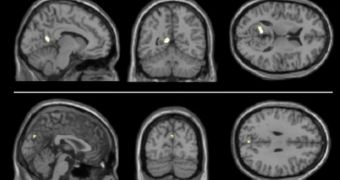A simple test can be used to test for Alzheimer's disease with tremendous results, a long time before symptoms of the disease begin manifesting themselves. Researchers explain in a new study that this test could reduce Alzheimer's-associated healthcare costs tremendously.
One of the advantages this approach has is that it indicates the development of this neurodegenerative condition before any significant negative side-effects are produced. Healthcare experts can intervene with greater efficiency if the disorder is in its earliest stages.
This investigation was carried out by experts at the University of Cambridge, who were led by professor Barbara Sahakian. The researchers focused their attention on patients with a disorder called mild cognitive impairment (MCI).
Oftentimes, MCI precedes the development of Alzheimer's, but only in certain cases. The Cambridge team used MCI patients for a series of assessments, in which participants were asked to complete tasks that revealed more data about their visuospatial relationship capabilities.
This approach is known as a paired associate learning (PAL) task, and each test subject must remember the location of 8 patterns that they only saw one time. As the participants were carrying out PAL, they were hooked up to functional Magnetic Resonance Imaging (fMRI) machines.
An fMRI scanner can detect which area of the brain is more active from an electrical perspective during a specific task. By using it, experts can figure out which areas of the brain control which processes, the Cambridge team explains.
“A major problem we find with Alzheimer’s disease is that by the time it is clinically detectable there is already a significant impairment to the sufferer,” explains Sahakian.
“The damage has already been done and there is a huge impact on the person’s quality of life and day to day functioning. Our research gives insight into how, and why, this test could be used to detect Alzheimer’s earlier than other current methods,” the expert adds.
“MCI is very much the precursor stage to Alzheimer’s. Indeed, seven of the twenty patients subsequently developed Alzheimer’s disease. What these results show us is that individuals with MCI have difficulty on this one particular task,” the team leader argues.
“This enables us to identify those who are at risk from Alzheimer’s and will hopefully allow us to halt or even prevent their decline before it becomes too severe,” Sahakian concludes.
Details of the study were published in the latest issue of the scientific journal Neuropsychologia.

 14 DAY TRIAL //
14 DAY TRIAL //